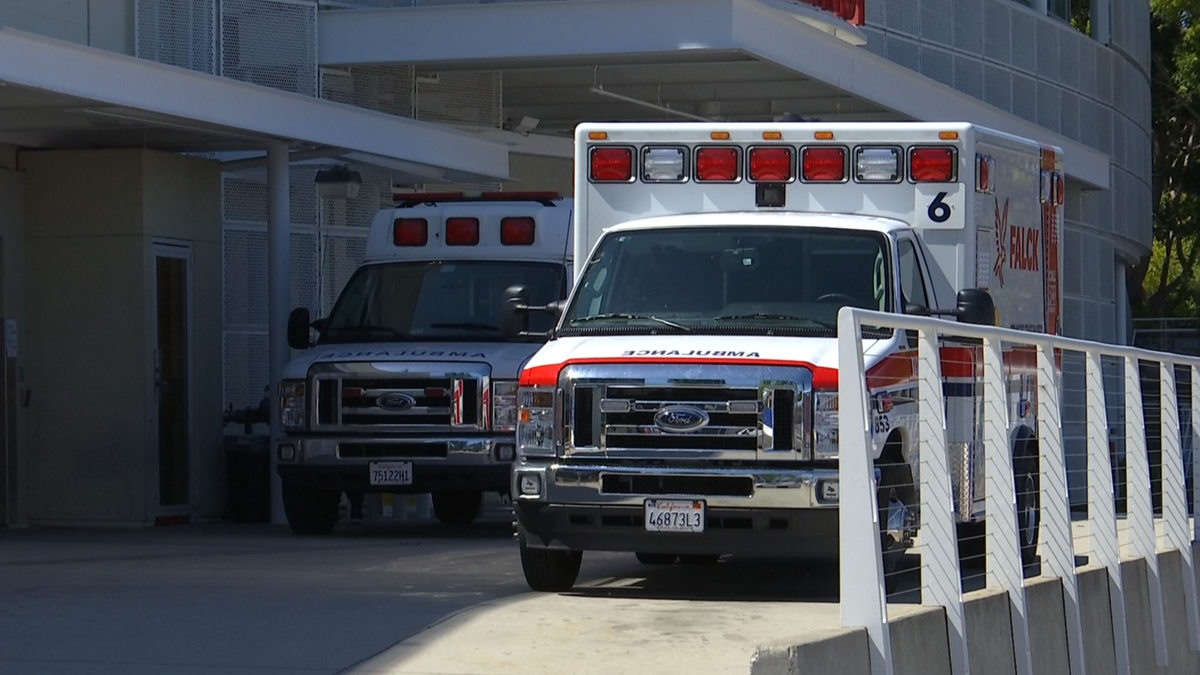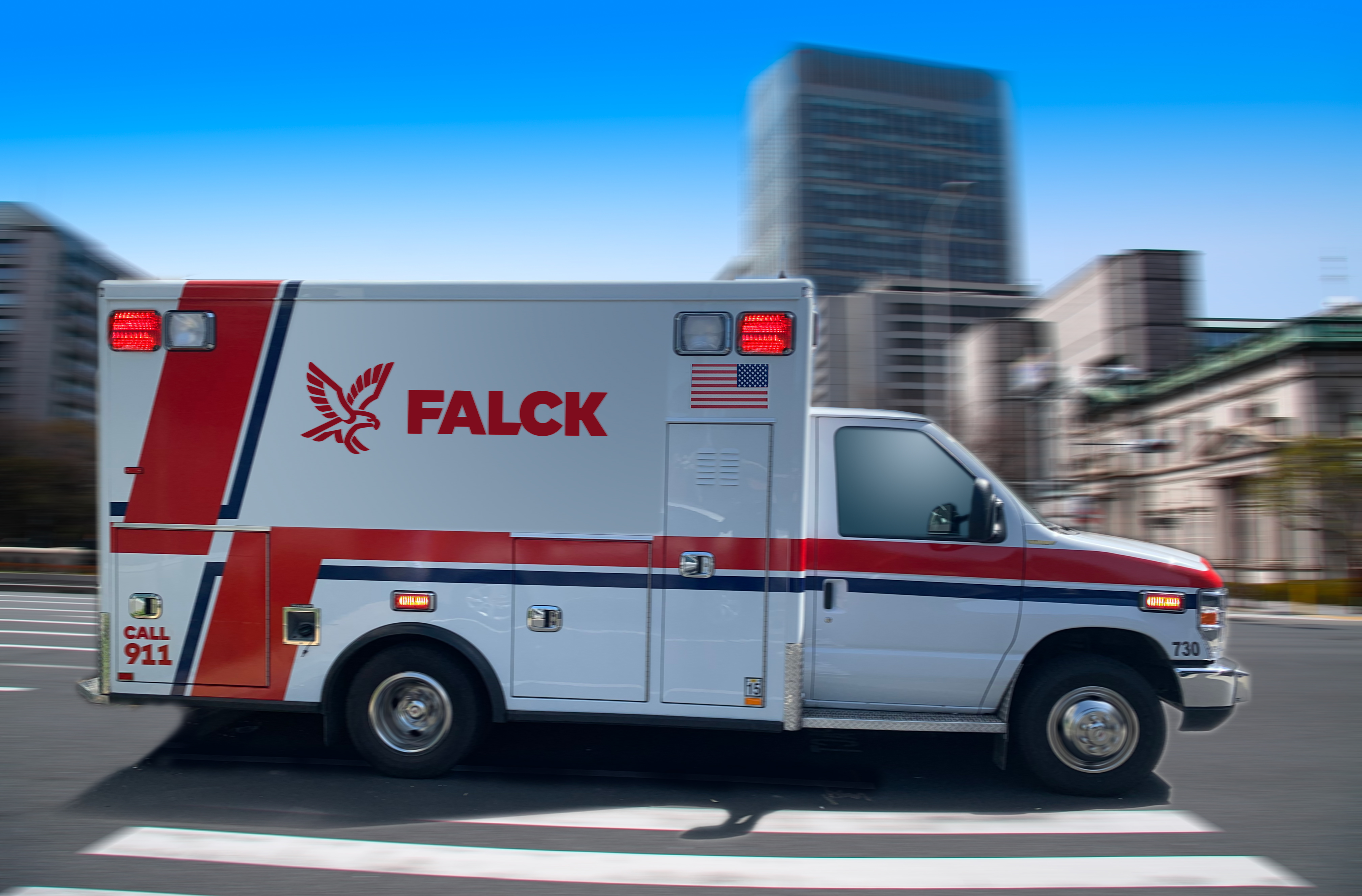Falck, the city of San Diego's emergency medical transport service provider, told the union that represents paramedics it will require employees to work overtime in an effort to speed up slow response times.
“That will have more paramedics and EMTs on the road and more unit hours. Our hope is the workload will decline, and the thought is the more people working, the more the workload during the shift will be reduced," explained Falck San Diego's Managing Director, Jeff Behm.
San Diego fined Falck $818,500 for failing to meet the terms of its contract to operate as the sole emergency medical transport service for the city.
Penalties totaling $457,500 were issued after Falck failed to meet its Q1 terms, between December 2021 and March 2022, according to the city.
Get top local stories in San Diego delivered to you every morning. Sign up for NBC San Diego's News Headlines newsletter.
Another $361,000 in penalties was ordered after Falck failed to meet its Q2 terms between April and June 2022. During Q2, Falck was fined $5,000 for each of its 48 delayed life-threatening emergency responses, $2,500 for each of its eight delayed non-life-threatening emergency responses and $1,000 for a single delayed urgent response, the city said.
Part of the problem, Behm says, is a staffing shortage.
The company has a little more than 100 full-time paramedics, short of the more than 130 they'd like to have, and the more than 140 that are needed to make sure vacations and other days off are covered.
"Working conditions are staggering. The physical and mental grind on the people is staggering," said Tony Sorci, President of San Diego Association of Pre-Hospital Professionals, the union that represents paramedics in San Diego.
The union president says his organization has filed a grievance against the company as a result of the overtime mandate.
"Mandation is nothing more than a band-aid for a bigger problem. We’re simply not going to be able to have any end in sight here. In order to resolve these issues we need to increase and maintain our staffing levels," said Sorci.
Behm said Falck offers $12,000 dollar bonuses for paramedics coming to work for the company, in addition to paying tuition for EMTs to become paramedics and paying double time for extra shifts.
Sorci says the bonuses aren't enough when other EMS companies are offering them, too, and also paying $2 per hour more.
“It’s not about a paramedic shortage,” said Sorci. “It's about a lack of competitiveness to recruit, hire and retain paramedics."
“We don’t believe it's just about the money. We believe, and they told us this, it’s about flexibility. They’re looking at a way to change hours or have more time off," explained Behm.
While Falck and the union are locked in contract negotiations, the ambulance company says it doesn't know how long the mandatory overtime program will be in place. It's expected to take effect later this month.
As a result, they're considering bringing back "fatigue timeouts" like they had during the pandemic to help address safety concerns if emergency crews feel overworked.
“You can go out of service for two hours to make sure you're refreshed," said Behm.
Related Coverage
To help improve response times, Falck says they're also working with U.S. Customs and Border Protection to get an ambulance and crew stationed at the San Ysidro Port of Entry to better assess high-priority vs low-priority calls.
They say life-threatening emergency calls that didn't rise to that level of need have fueled slowdowns, leading to some of their delays and subsequent fines.
Behm said Falck is also trying to work with hospitals to reduce the wait time it takes to admit patients.
Since April, wait times over 30 minutes at hospitals are up 50%, according to the company.
“We need to be out of the hospital in under 30 minutes because we need to get back out into the system to take care of those patients,” Behm told NBC 7 Investigates in June. “So any time over 30 minutes, to me, is not acceptable.”
California’s Emergency Medical Services Authority sets a goal time of 20 minutes to transfer the care of patients from ambulances to hospitals. Anything longer than that is considered delayed.
Because of the slow response times, the San Diego Fire Department also says it's considering bringing the ambulance service in-house.
In response to Falck's plan to require overtime, the department issued a statement that reads:
San Diego Fire-Rescue (SDFD) is encouraged by Falck’s effort to meet their contractual obligations with the City of San Diego. SDFD uses mandatory overtime to ensure adequate staffing necessary to respond to emergency calls. Public safety is not to be compromised. While mandatory staffing is an internal matter between Falck and their labor union, the City of San Diego acknowledges this as a potential solution to meet their contractual obligations.



